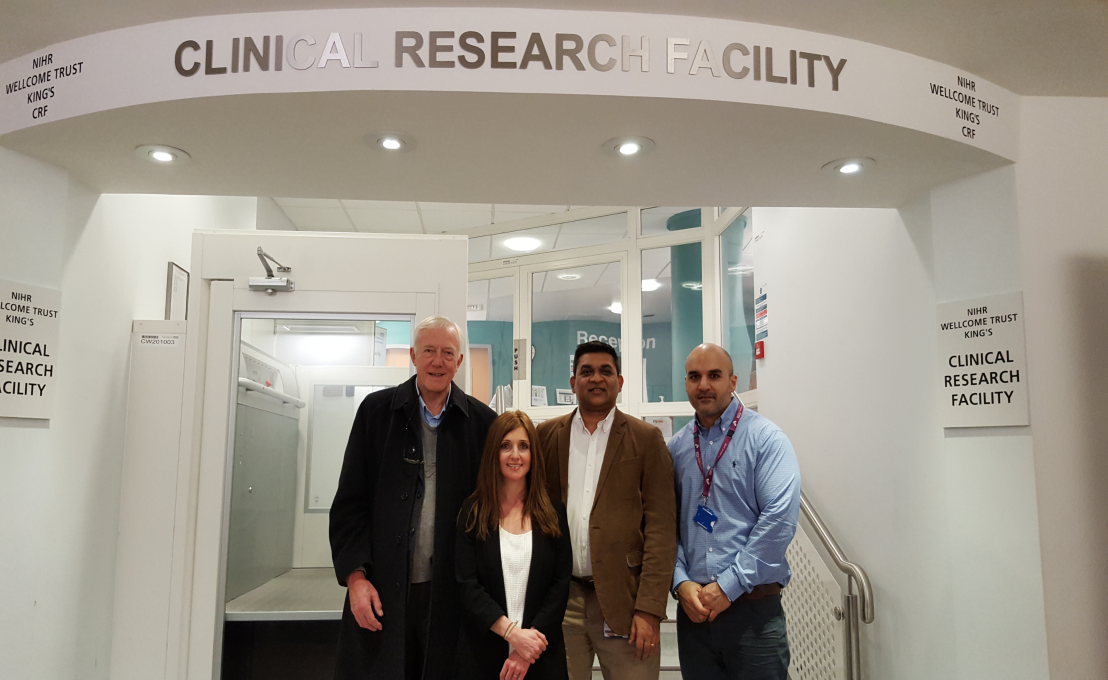Sarizotan projected to be first approved treatment for Rett Syndrome

In this update from Newron Pharmaceuticals, sponsors of the STARS study, CEO Stefan Weber, projects that Sarizotan, subject to study results in Q4 of 2019, will become the first approved drug for treatment of Rett Syndrome.
Reverse Rett has been pivotal in supporting the UK arm of the Sarizotan trial at King’s College Hospital in the UK since the trial started in 2017.
Enrollment for the study is now completed internationally. This was a challenge because the health of so many patients was too unstable for them to participate.
The UK trial site at King’s was the number one recruiting centre for the trial internationally out of 14 trial sites, with 26 patients screened, more than double the number originally required. Reverse Rett has worked closely with Primary Investigator, Professor Santosh at KCH prior to and throughout the duration of the trial to identify, recruit and refer patients and to support patients and families participating in the trial with logistical arrangements for travel and accommodation for their many study visits.
Here are some of the key points highlighted by Weber in this video update:
Of those patients who entered the study, to date 90% made it through completion of study and 90% chose to go on to the open label extension period. All patients on the extension period receive the drug, including those who were previously on placebo.
In Q4 this year, Newron will produce the results of the study. If the results are positive, subject to regulatory approval, Sarizotan is likely to become the first approved treatment for Rett Syndrome.
The first readout from baseline data of the first 100 patients enrolled in the study shows, that different from past teaching, and different from information gathered in the US Natural History Study, there is worsening in all key features of Rett with age. Data from the study shows objectively that breathing gets worse with age.
Oxygen saturation levels go below 90%, for 48 mins of the hour which indicates that the effects of the disease, particularly in terms of breathing irregularities are far worse in affecting patients than has been previously believed.
Weber also highlights that we must update information available to families and clinicians with lessons learned from this first objective data from the study.
Reverse Rett continues to work in partnership with Newron and the team at King’s College Hospital to support patients and families participating in the UK arm of the trial, including those who have gone on to the extension period.
We are also working with Newron and industry affiliates to prepare to drive approval of this potential treatment for Rett, subject to positive trial results which we hope to see emerging later this year.
Reverse Rett wishes to thank all patients and families who volunteered to take part in the trial, Professor Santosh and team at King’s College Hospital for their excellence in care and ongoing commitment to patients and our industry partners at Newron for their efforts to improve the lives of patients and families with Rett.